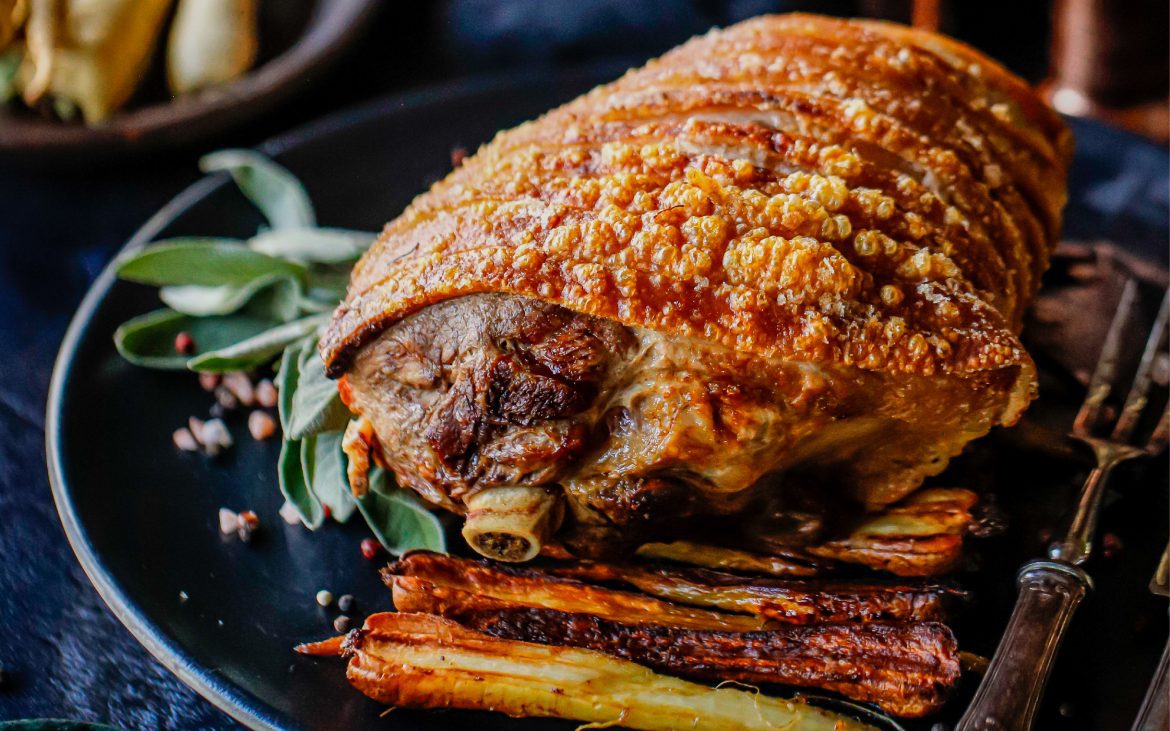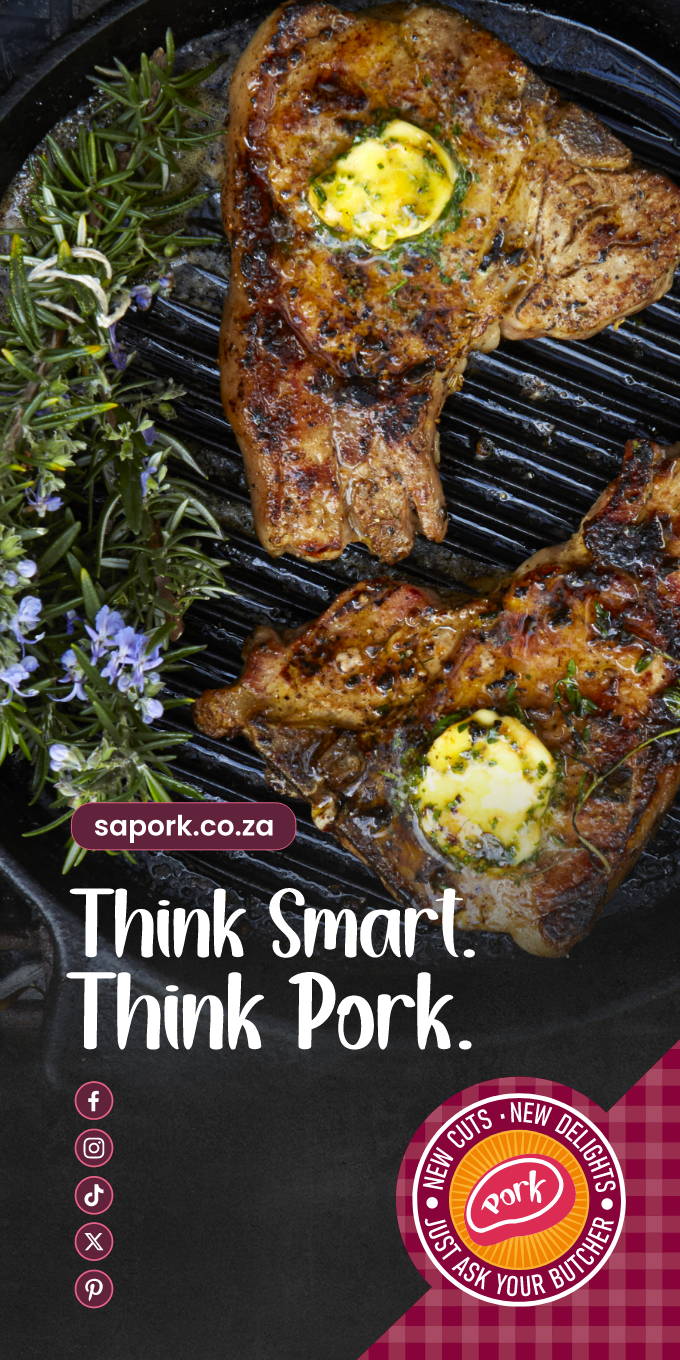In the kitchens, dining rooms and braais of South Africa, pork has too often been pigeon-holed as a “treat for occasions” or condemned with the shorthand myth that “it’s fatty and makes you fat”. Time to flip that script. The industry behind fresh South African pork is nothing short of world-class, and the versatility and nutritional value of this fine red meat mean it deserves a place on the everyday table, not just on Sundays or special occasions.
First, let’s peek behind the scenes. South Africa’s commercial pork producers are catching global attention for excellence in farm standards, animal care, traceability and sustainability. A recent chef-farm visit at a premier piggery emphasised that this is not “factory farming” in the derogatory sense, but rather careful craft on a large scale: housing designed for comfort, strict bio-security, waste-reuse systems, and full traceability from farrow to fork.
That means when you buy a fresh leg, shoulder or loin cut of locally-produced pork you’re buying into a system of integrity, not compromise.
“When you buy fresh South African pork, you’re not just buying flavour, you’re buying into integrity, traceability and world-class farming.”
What about the nutritional credentials? Far from being a “cheat meal” meat, fresh lean pork from South Africa delivers high-quality animal protein alongside a rich suite of vitamins and minerals. According to the national pork facts sheet, 100 g of cooked lean pork (leg, loin, shoulder) contributes around 24 % of your daily thiamine (vitamin B1), about 35 % of niacin (vitamin B3), more than 30 % of vitamin B6, and excellent amounts of selenium and zinc.
It also holds its own in comparisons with beef or lamb for lean-cut profiles. And yes, as part of a balanced diet, lean fresh pork does not increase heart-disease or diabetes risk.
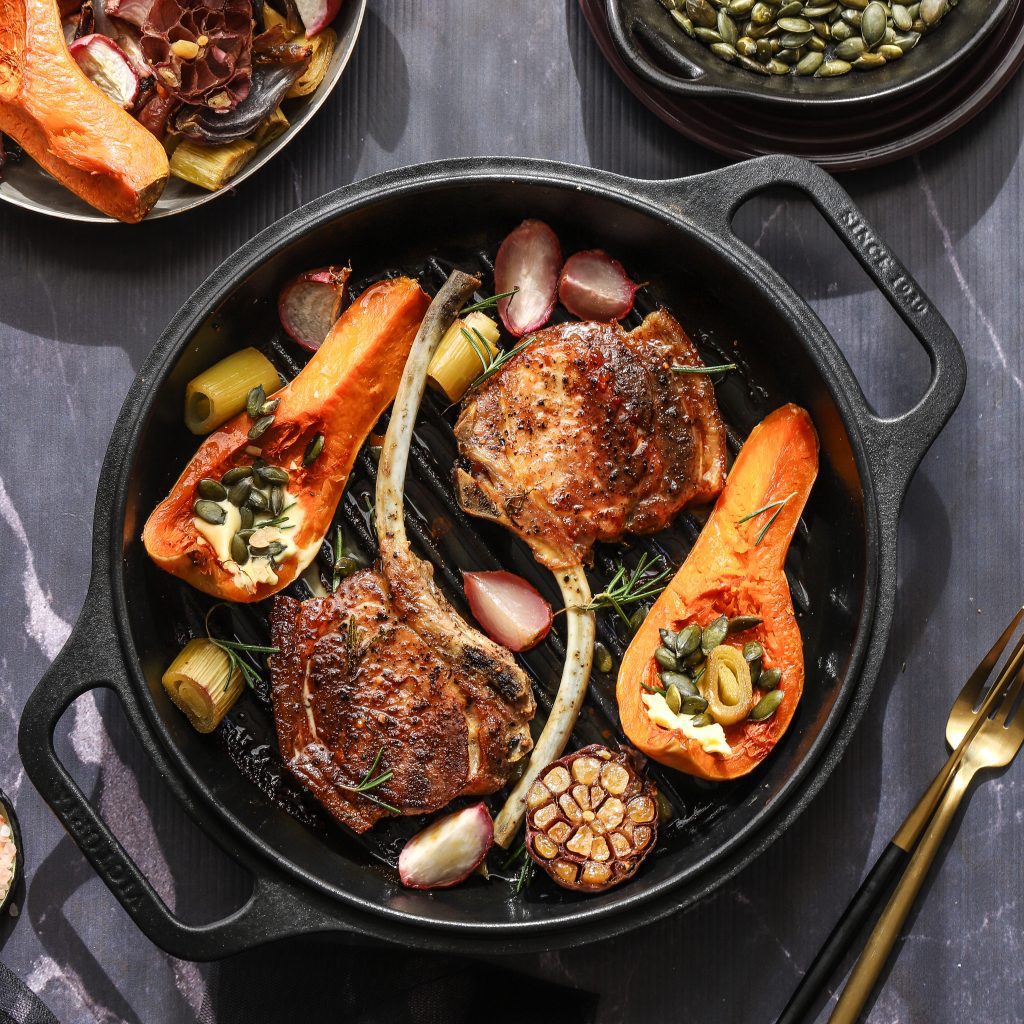
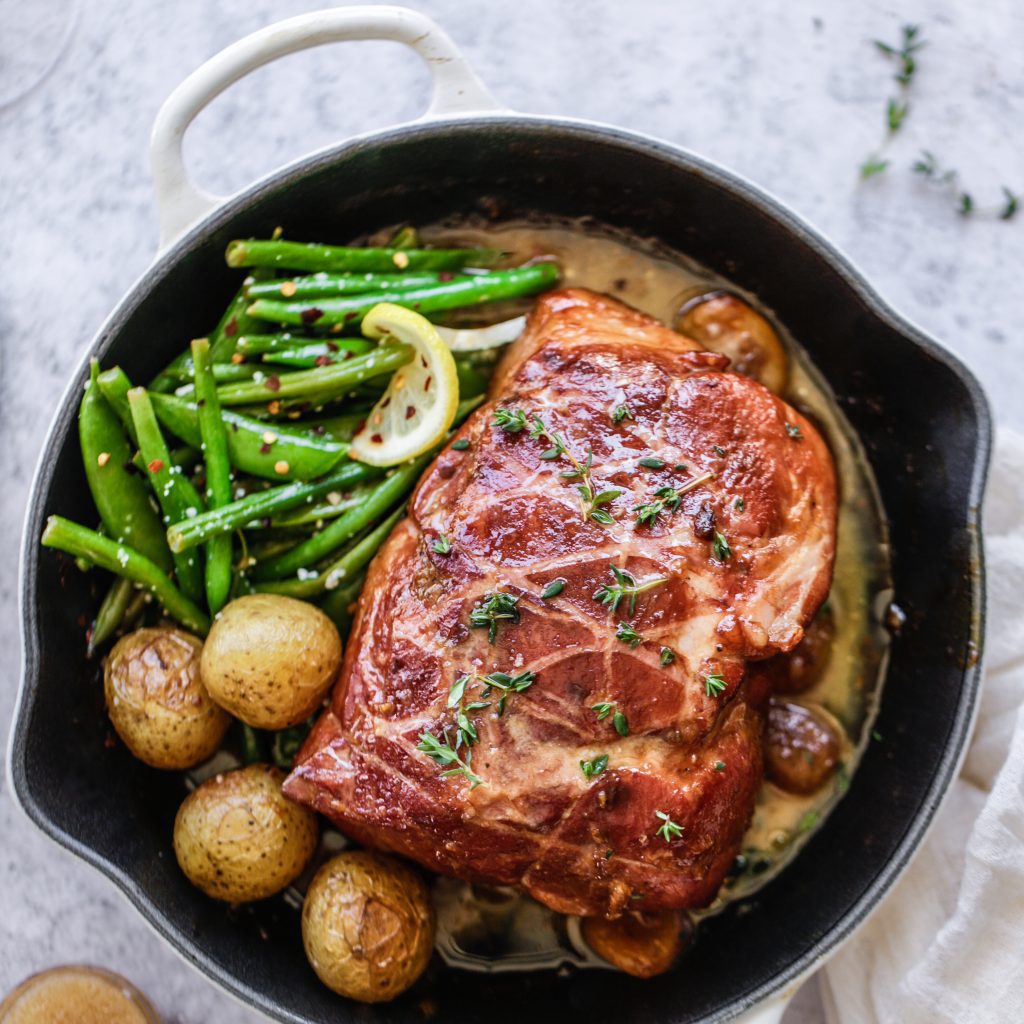
Now to the myth-busting bit. Many believe “pork is fatty and makes you fat”. The fallacy lies not in the meat itself but in the choice of cuts and how they’re prepared. The key is lean cuts, such as the loin, fillet, leg roast or shoulder trimmed of excess fat. These cuts bring succulent flavour without unwanted excess. And when one shops smart, one selects the right cut, cooks it with respect, and enjoys rather than over-indulges. Hence: Think Smart. Think Pork!
Pork doesn’t need to remain a “once a week celebration” meat. It can sit comfortably on the mid-week menu, alongside vegetables, salads or rice, without guilt.
“Lean cuts, smart cooking and everyday flair, that’s how pork goes from special occasion to smart choice. Think Smart. Think Pork.”
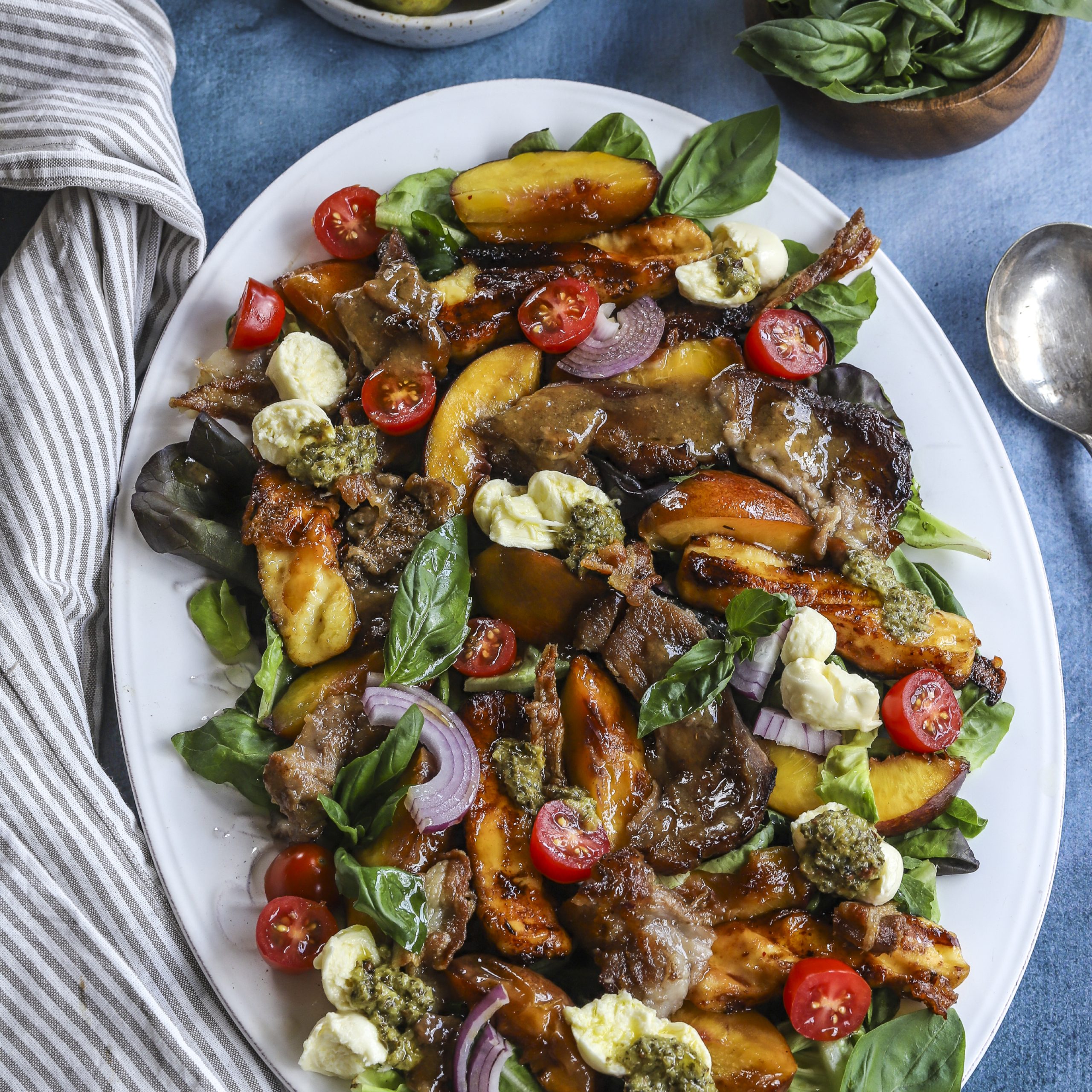
What about cooking versatility? The pork loin can be roasted with rosemary and garlic for a refined week-night meal; the shoulder can slow-cook into pulled-pork inner-child-smile territory; the leg cut can be sliced thin for stir-fries or quick grills. And all those cuts offer different textures and flavours, giving home cooks real flexibility.
Indeed, fresh pork is not “plain” fare , with the right marinade or rub (think local herbs, citrus, peri-peri) it can shine equally in braai culture or as a smart weekday plate.
Finally, from a value point of view, fresh South African pork is an affordable red-meat option that punches above its weight. For consumers who want both quality and smart nutrition, it ticks both boxes.
So next time you’re planning the menu, remember: opting for fresh lean South African pork means choosing integrity, flavour and nutrition. It’s not just smart for Sundays, it’s smart for every day. Think Smart. Think Pork!


